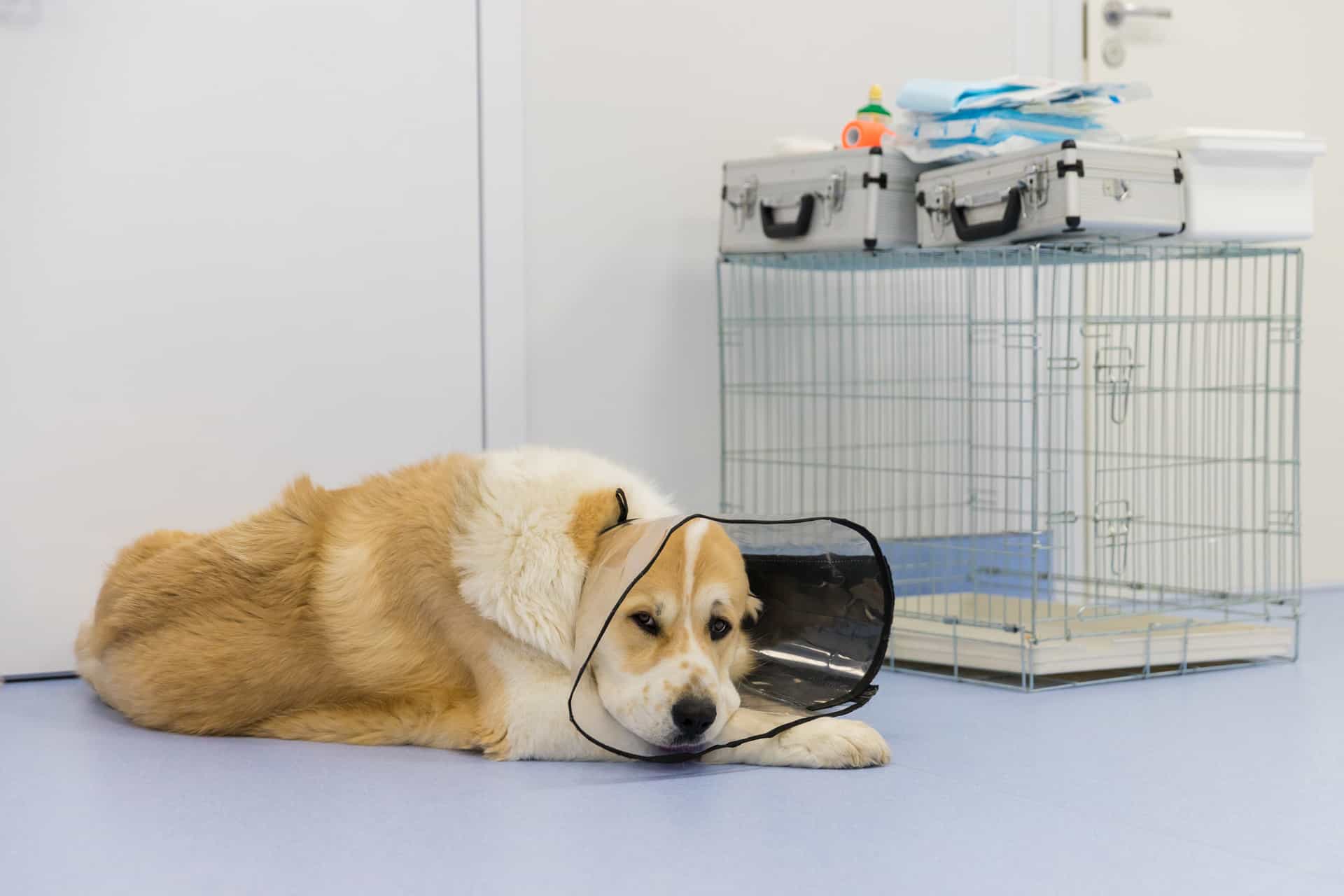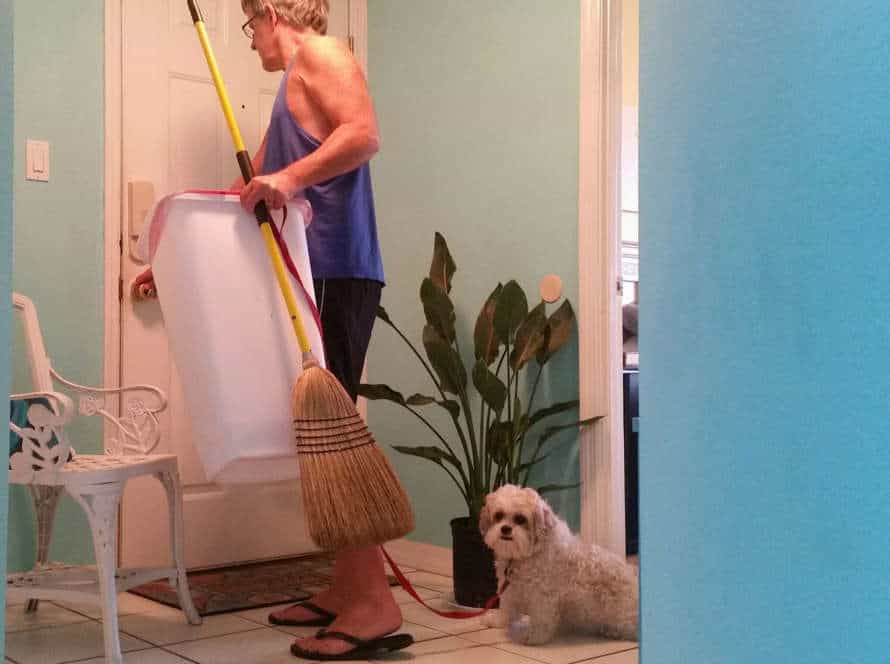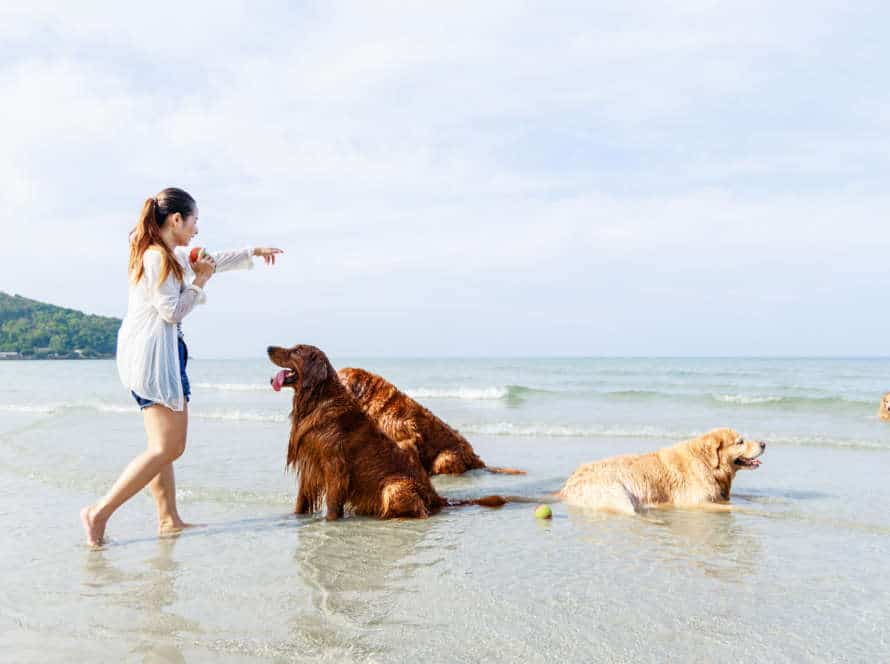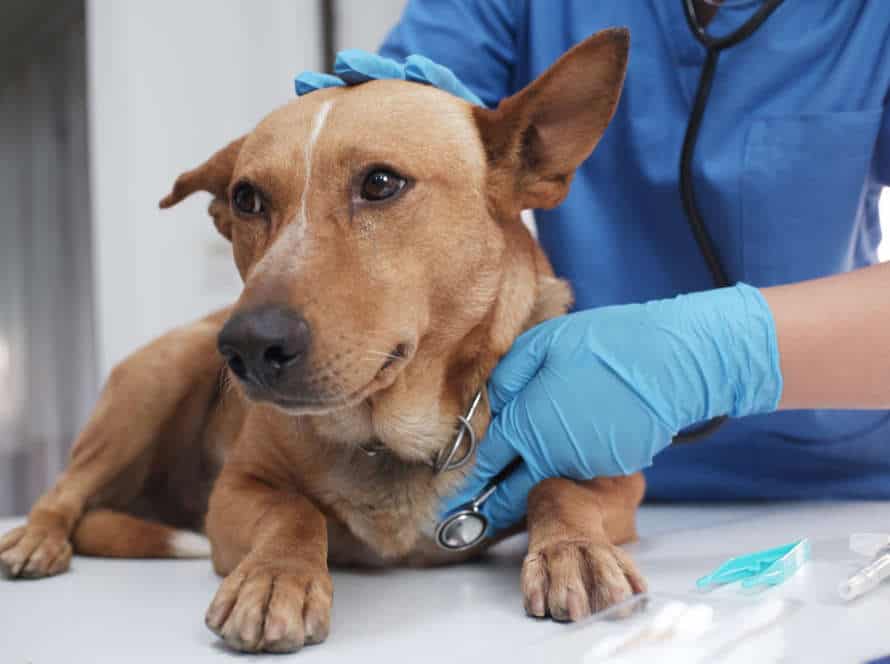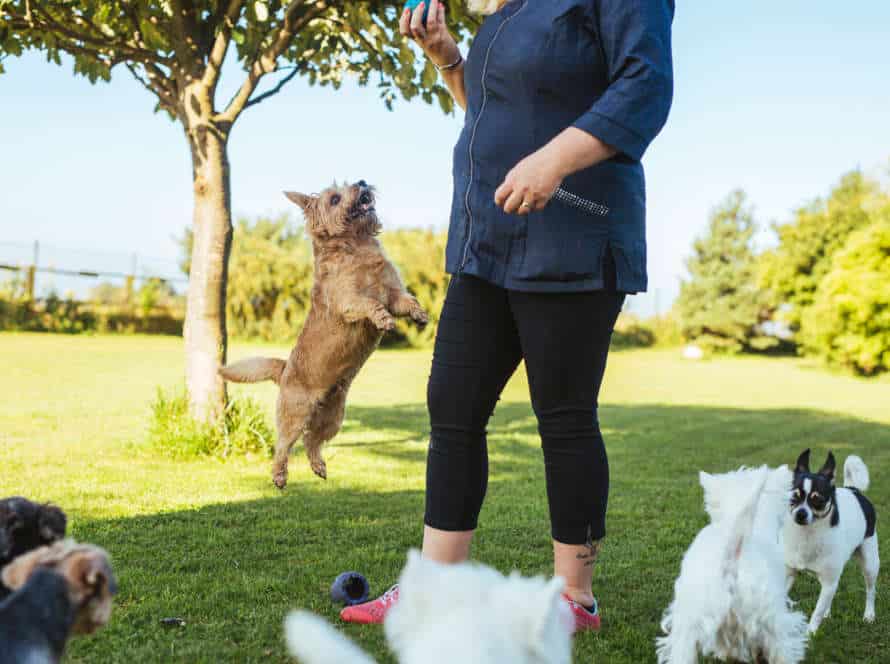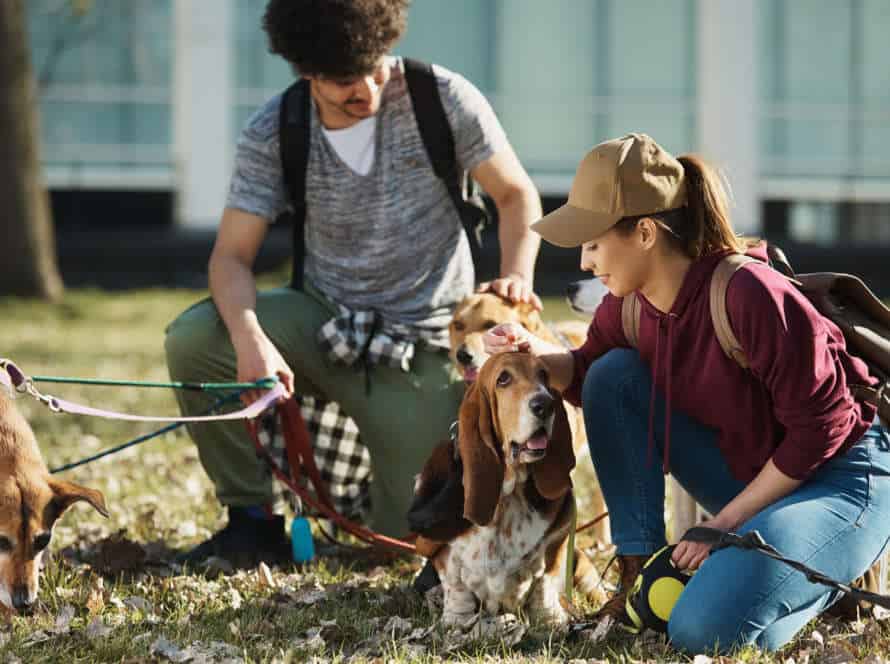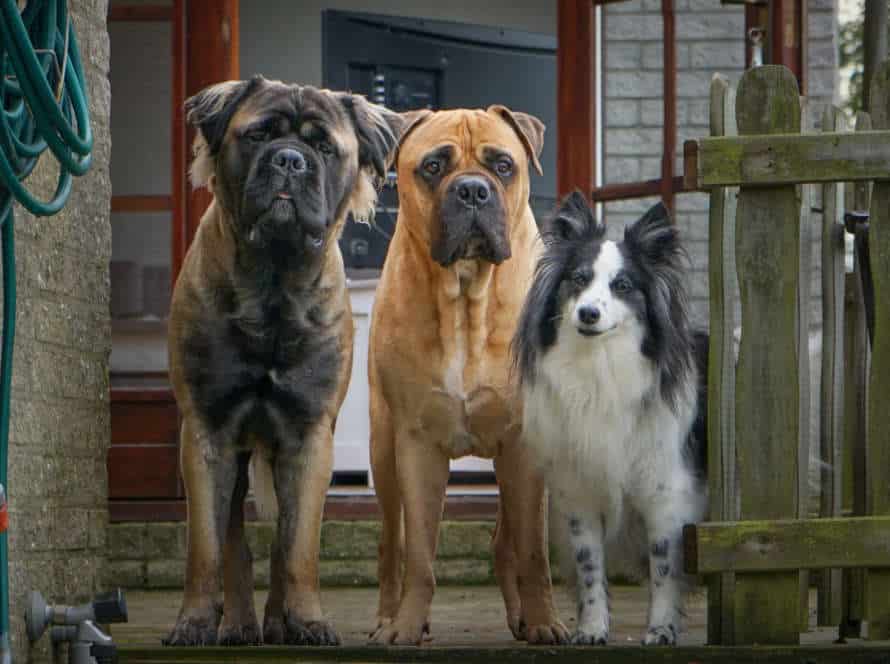Managing Your Dog’s Weight After Spaying or Neutering
Spaying or neutering your pup can result in weight gain. It’s essential to manage it for their health and to avoid potential issues. Here are some tips for keeping their weight in check:
- Portion size needs to be limited and reduce the treats.
- Choose low-calorie treats and make up for it with playtime or toys.
- Provide a balanced diet, watch out for human foods that could be harmful.
- Increase exercise with a good walk or a canine sport.
- Ask your vet for advice on their weight and potential changes to their diet.
Prioritize their health by checking their weight and giving them fun activities. This will guarantee a happy and healthy pooch!
Understanding the Impact of Neutering or Spaying on your Dog’s Weight
Neutering and spaying can affect your dog’s weight and health greatly. Non-neutered and non-spayed dogs have different nutrition needs than neutered or spayed ones. Knowing the effect neutering and spaying has on your dog is key to making a weight management plan that fits your pet’s individual needs.
Why spaying or neutering can cause weight gain in dogs
Spaying or neutering your dog can cause weight gain. Reasons include altering their hormonal balance, decreasing their metabolism and changing their behavior.
After the procedure, their metabolism slows, making them more prone to weight gain. Hormonal balance and testosterone levels decrease, causing a decrease in muscle mass and an increase in fat storage. Neutered dogs may have less physical activity, burning fewer calories and gaining weight.
To manage your dog’s weight, provide them with a healthy, balanced diet, limit treats and increase exercise. Consult your veterinarian to develop a weight management plan for your dog.
Remember to monitor your dog’s weight after the surgery, and have regular check-ups with your veterinarian. Pro Tip: Be proactive!
How age and breed can affect weight gain after spaying or neutering
After spaying or neutering, weight gain in dogs can vary. Age and breed play a role. Young dogs have faster metabolisms, but this slows with age. Neutered or spayed older dogs tend to gain weight due to their slow metabolism. Certain breeds like Labradors, Beagles and Cocker Spaniels, are more prone to gaining weight due to their slower metabolism. Breeds like Greyhounds are naturally leaner. To manage your dog’s weight, select the right food, exercise regularly and avoid overfeeding. Scheduling checkups with your vet can help address any potential health issues from excess weight gain.
Other factors that can contribute to weight gain after spaying or neutering
Neutering or spaying may lead to weight gain in dogs; however, other factors are involved too. Here are a few of them:
- Diet – Providing more calories than needed can cause weight issues. A low-calorie, high-quality food should help.
- Exercise – Not getting enough activity can lead to weight gain too. Keep your dog active with regular walks and playtime.
- Age – A slower metabolism as they age can make weight gain more likely. Adjust their diet and exercise to help them stay healthy.
- Breed – Some breeds are more prone to weight gain than others. Ask your vet what an ideal weight is for your pup’s breed.
- Medical Conditions – Certain medical conditions can cause extra weight, so it’s important to get them checked out by a vet.
Pro Tip: Exercise and a balanced diet are essential for maintaining a healthy weight for your spayed or neutered pup.
Creating a Diet Plan for Your Dog
It’s key to adjust your pup’s diet when they’re spayed/neutered. A meal plan made to their individual needs can help them stay healthy and fit. Here, let’s check out tips and tricks for making an effective diet plan for your dog.
Understanding your dog’s nutritional requirements
It’s key to comprehend your pup’s dietary needs. Especially after they’re spayed or neutered, this will help manage their weight and avoid health issues.
For the best diet plan, look for dog food brands with high-grade animal protein sources and few fillers, like corn and wheat.
Use the ‘Complete and Balanced‘ label as a guide to guarantee the food meets their dietary requirements.
Give your dog fresh water all the time.
Chat with your vet to make a diet plan that’s customised to their individual needs and health conditions.
Don’t overfeed your dog, particularly after neutering or spaying, as they’re more likely to gain weight due to adjustments in their metabolism and hormone levels.
Choosing healthy dog food options for weight management
Choosing healthy dog food is vital for weight control in pooches, especially after spaying or neutering. Here are some tips to pick the right one for weight management:
- Go for low-calorie options. Pick dog food with a lower calorie count to help your pup maintain a healthy weight.
- Focus on nutrient-dense foods. Look for dog food that is high in protein, fiber, and other essential nutrients to make your pup feel full and content.
- Avoid fillers and by-products. These provide little nutritional value and can lead to overeating.
- Consult your veterinarian. They can recommend specific dog food brands that will suit your pup’s nutritional needs and weight management goals.
Remember to always provide fresh water and check your pup’s weight regularly. Pro tip – Incorporate healthy treats such as baby carrots or apple slices into your pup’s diet as a low-calorie snack option.
Measuring and portioning your dog’s food
It’s essential to measure & portion your pup’s grub for a healthy diet. Here are some pointers:
- Use a measuring cup or kitchen scale to get the exact amount of food needed.
- Check the dog food packaging for the right serving size based on weight, age & activity level.
- Divide the daily food intake into two or three servings, so they don’t eat too much at once.
- Don’t feed table scraps & limit treats to 10% of daily food intake.
- Keep an eye on your pup’s weight & adjust food portions to maintain a healthy weight.
Incorporating Exercise into Your Dog’s Routine
Spaying or neutering your pup can lead to weight gain. Managing their weight before and after is key. One of the best ways to prevent weight gain is regular exercise. Here are some ways to keep your dog fit and healthy!
The importance of physical activity for dog weight management
Physical activity is a must for keeping dogs’ health and weight in check, especially post-spaying or neutering.
Exercising helps dogs burn calories, stay toned, and avoid packing on the pounds. This can prevent diabetes, joint issues, and heart disease.
Daily walks, running, playing fetch, and agility training are great ways to give your pup activity and better health.
But, you must adjust intensity and length of exercise, depending on age, breed, overall health, and any medical conditions. Ask your vet for advice on making an exercise routine that’s safe and effective – especially after surgery or injury.
Low-impact exercises for dogs after spaying or neutering
After spaying or neutering a pup, low-impact exercises are better for managing weight and avoiding complications. Pay attention to activity level during recovery to keep away from strenuous activities which can hurt, injure, or cause infection.
Here are some low-impact exercises to use post-surgery:
- Walking: Start with short walks and gradually increase duration and intensity.
- Swimming: Build strength and endurance in a supported environment. Get vet’s clearance. Supervise your dog.
- Slow-paced Games: Stimulate pup mentally and physically. Play fetch or hide-and-seek.
- Stretching: Increase flexibility and prevent stiffness. Learn basic stretches from vet. Gently guide pup.
Pro Tip: Always consult vet before starting exercise routine.
Increasing your dog’s exercise gradually
After spaying or neutering, ramping up your pup’s exercise is key to managing their weight. Take baby steps and increase their physical activity bit by bit to keep them safe. Here are a few tips:
- Begin with short strolls in your area or a park.
- Each week, lengthen and amp up the walks.
- Play games like fetch and tug-of-war to get their heart rate up and burn calories.
- Take your pup on an adventure like a hike or to a dog-friendly beach.
- Watch your doggo’s behavior and adjust as needed. If your pup seems tired or lethargic, take a break and resume the next day.
Remember: Always get the vet’s approval before starting any exercise routine, especially if your pup has any health problems.
Monitoring Your Dog’s Weight
Post-spay or neuter your pup? Monitor their weight! Don’t let them get overweight. To keep your pup healthy, follow a few steps.
- Give them a balanced diet.
- Reduce treats.
- Manage their weight.
That’s the key to success!
Using body condition scoring to monitor your dog’s weight
BCS is a tool used by vets and pet owners to evaluate a pup’s weight and health. Checking BCS helps to spot if a pup is under or overweight, and what steps to take to manage it.
Here are the steps:
- Place your hands on the side and feel for the ribs.
- Determine the amount of fat based on how thick it feels.
- Look at your pup from above and assess its waistline.
- Repeat this regularly to track its weight changes and amend its diet and exercise.
After spaying or neutering, metabolism may change, making weight gain easier. Using BCS frequently and making adjustments can stop obesity and its health problems. Pro tip: Exercise and balanced nutrition are key for a healthy weight.
How often to weigh your dog to track progress
It’s advised to weigh your pup every fortnight. This will help keep tabs on their weight, especially after spaying/neutering. A healthy weight is essential for their overall health. Here’s how to do it at home:
- Use a scale that’s reliable and accurate.
- Weigh yourself, then weigh yourself and the dog together. Subtract your own weight from the total to get the pup’s weight.
- Write down the weight in a notebook or chart.
- If there’s any significant gain/loss, talk to your vet to figure out the cause.
Pro tip: Exercise and a balanced diet are key to managing weight. So make sure your pup is getting enough physical activity and healthy food.
Adjusting your dog’s food and exercise plan as necessary
Keeping tabs on your pup’s weight is key for their overall health. Especially post-neutering or spaying. Here’s some tips to help:
- Monitor meals: Depending on breed, age and weight, your dog may need a certain amount of food daily. Don’t just rely on the food package instructions, ask a vet for the right amount.
- Exercise: Make sure your dog gets enough exercise according to their age, breed, & activity level. If they’re less active after being neutered/spayed, adjust their plan.
- Set a routine: Having a consistent exercise & feeding plan can help the pup stay a healthy weight. Avoid treats & table scraps.
- Speak to a vet: If worried about their weight, chat with a vet to determine the best food & exercise plan.
- Bonus tip: Weigh your dog often & track their progress to adjust their food & exercise plan as needed.
Frequently Asked Questions
Q: Why do dogs gain weight after spaying or neutering?
A: Spaying or neutering can slow down a dog’s metabolism, leading to weight gain. Additionally, the decrease in hormonal changes can cause a dog to become less active and more prone to overeating.
Q: How can I tell if my dog is at a healthy weight?
A: You should be able to feel your dog’s ribs without having to press hard. Your dog’s waist should also be visibly noticeable from above, and their stomach should tuck up when viewed from the side.
Q: What is the best way to manage my dog’s weight after spaying or neutering?
A: Feeding your dog a balanced diet and providing regular exercise is essential. It is also important to monitor your dog’s weight and make necessary adjustments to their diet and exercise routine to maintain a healthy weight.
Q: How can I encourage my dog to stay active?
A: Engage in regular playtime and walks with your dog. Consider using puzzle toys or training exercises to keep them mentally stimulated and physically active.
Q: Are certain dog breeds more prone to weight gain after spaying or neutering?
A: Yes, some breeds, like Labrador Retrievers, Basset Hounds, and Cocker Spaniels, are known for their tendency to gain weight. It is important to be aware of your dog’s breed and monitor their weight accordingly.
Q: What should I do if my dog is still gaining weight despite a balanced diet and regular exercise?
A: If your dog continues to gain weight, consult with your veterinarian to rule out any underlying health issues. They may also suggest specialized diets or additional exercise routines to help your dog achieve a healthy weight.

